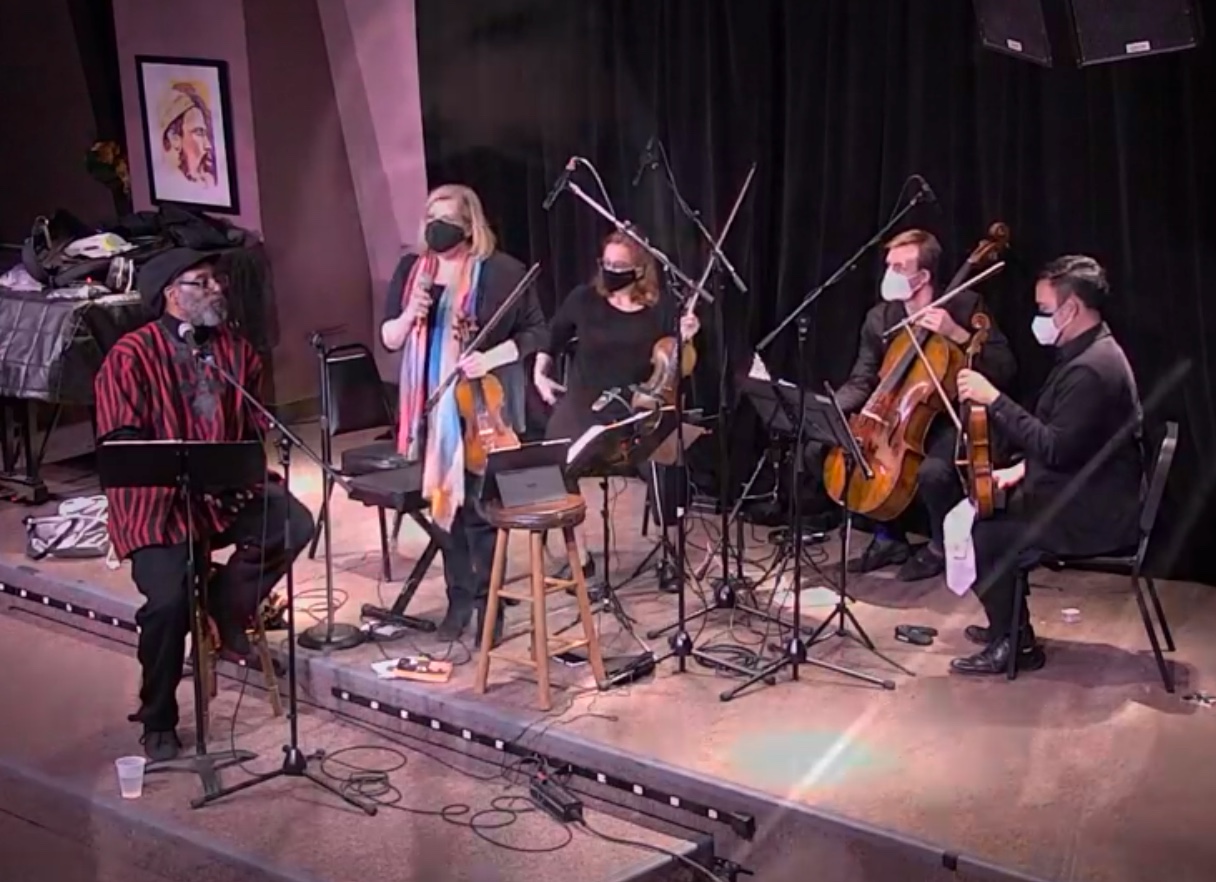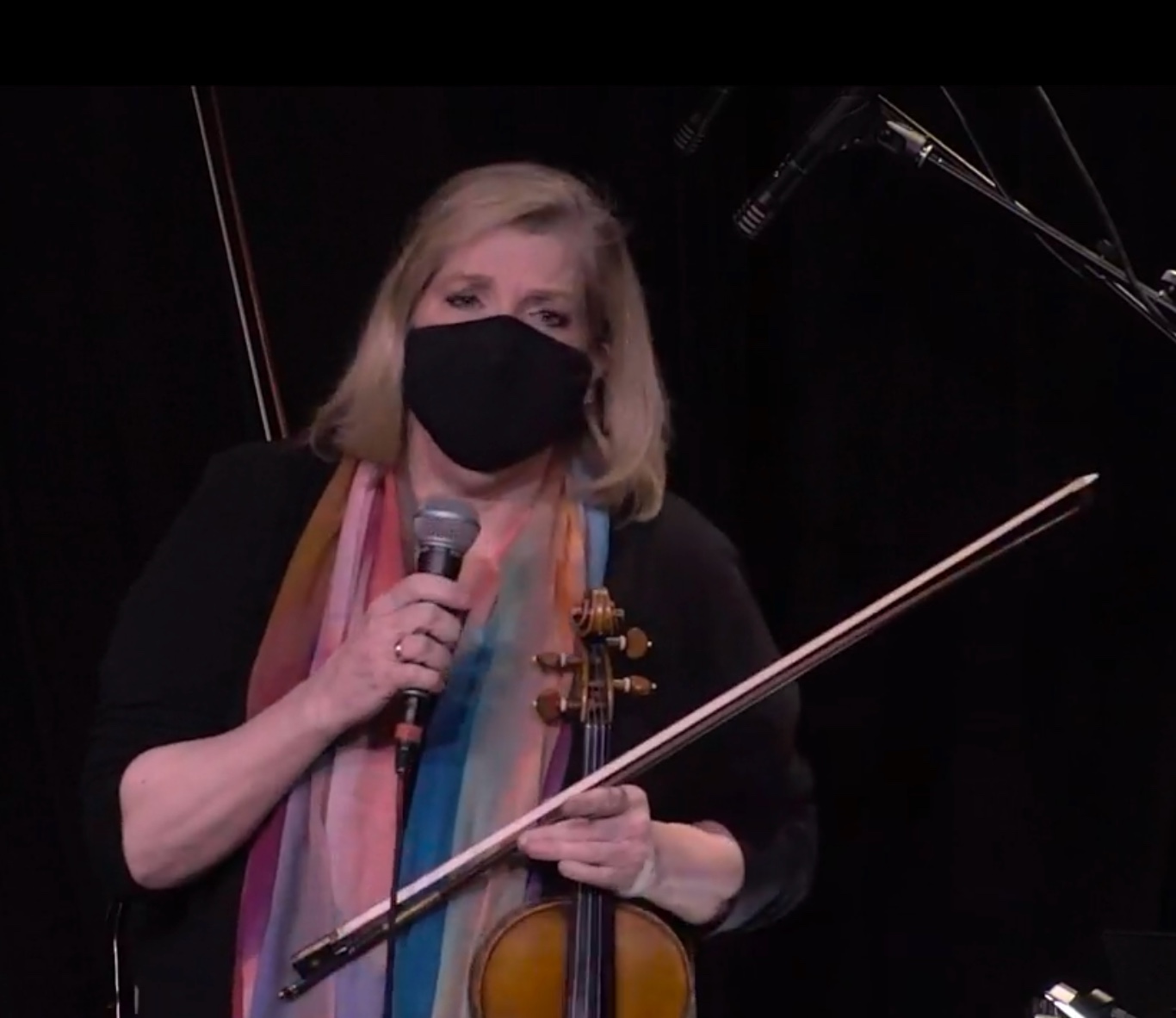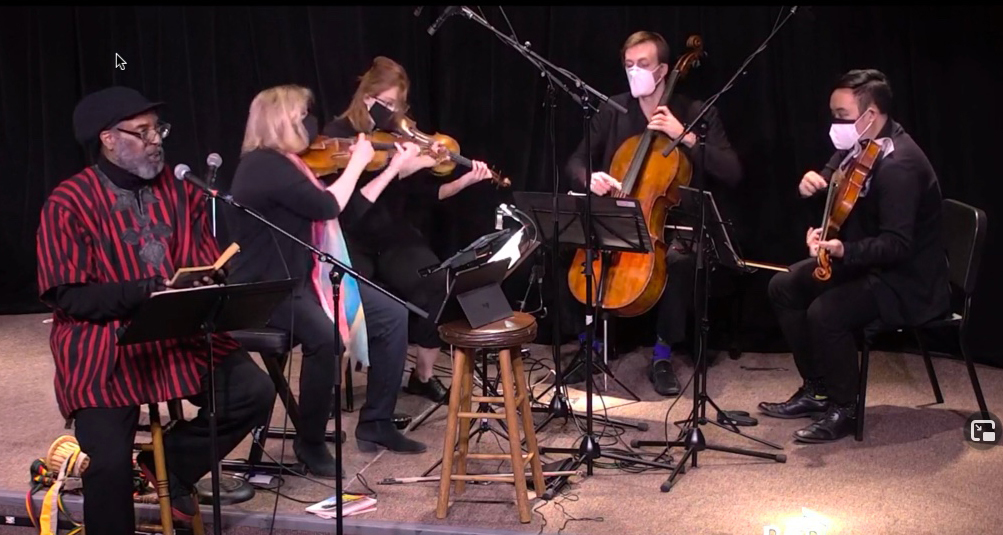by Daniel Hathaway

A refreshing reminder of both the unique powers and deeper kinships of music and poetry, the performance of Collage on October 14 filled the Auditorium of Pilgrim Church with sounds both tranquil and mighty. In an era when rhyming rhythmic recitation over instrumental sound hardly constitutes a new idea — hip-hop, after all, is the ascendant popular genre of the present century — Okantah and the Cavani have engineered something unique, brilliant, and vital.
The Cavani (violinists Annie Fulliard and Catherine Cosbey, violist Eric Wong, and cellist Kyle Price) and Okantah took Collage online for its most recent iteration, performing the one-hour program live but without an audience from the Bop Stop on Thursday, January 21 in conjunction with Martin Luther King Day.
The poet and musicians have honed this program to a fine edge over the years. As they demonstrated in the opening pairing of the slow movement of Dvorak’s “American Quartet” with Okantah’s Collage, in which the poet travels to the South in search of history and “ancestral blood voices,” words were not merely superimposed on the music, but carefully cued and timed.
This was even more impressive later in the program, when former Clevelander Langston Hughes’ A Dream Deferred — the first poetry Okantah said really spoke to him — was paired with three movements from Bartók’s Fourth Quartet, dating from 1928, and a fourth from the “American” Quartet.
Jessie Montgomery’s Strum added an extra dimension to Okantah’s poem Unforgivable Blackness, dedicated to the heavyweight champion boxer Jack Johnson (1878-1946), which “tells the story from the perspective of a Black man living in a sometimes hostile society,” as well as to Dana Oldsbottom’s poem, Indifference.

Merry Peckham, who played cello with the Cavani for 30 years, contributed Breakfast at the Ibis to the playlist at Okantah’s request, who wanted something “Twilight-Zoneish” to go with his poem, named after a hotel where he stayed in London. Here, the poet joined the strings on percussion, taking up a tama, the “talking drum” of Senegal and Gambia.
Okantah’s Midnight Child recalls the period in his life when he was thinking about dropping out of college and an old Black woman invited him onto her porch, where he proceeded to “get me told.” Fullard’s college friend Charles Washington contributed an arrangement of Sometimes I Feel Like a Motherless Child, whose 12-bar blues format gave the Cavani the opportunity for some expressive solos.

At the end, Annie Fullard gave a well-earned shoutout to Bop Stop manager and jack-of-all-trades Gabe Pollack, referring to him as “the Wizard of Oz.” Happily, that man behind the curtain made a recording of this memorable hour at the Hingetown jazz club, which can be viewed here on demand.
Published on ClevelandClassical.com January 27, 2021.
Click here for a printable copy of this article



